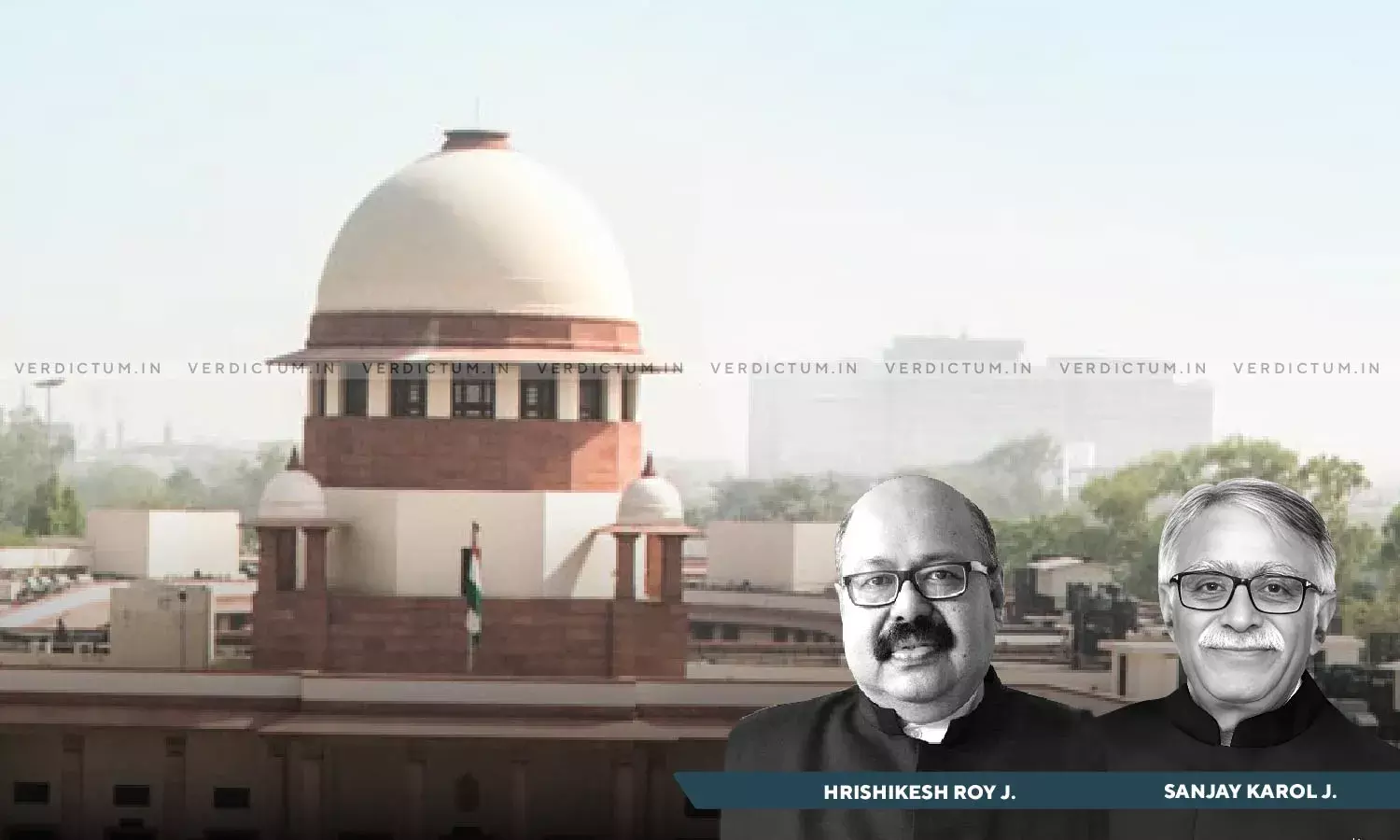Whether Payment Of Gratuity Act 1972 With Higher Benefits Will Prevail Over State Gratuity Law For Employees Governed By State Law: SC To Examine

The Supreme Court of India is set to examine whether, in the context of gratuity payments to retired employees of a private college affiliated to a state university, the Central law, viz. the Payment of Gratuity Act, 1972, which offers higher gratuity, takes precedence over State's law that prescribes a lower gratuity amount.
The Bench of Justice Hrishikesh Roy and Justice Sanjay Karol agreed to hear a Special Leave Petition filed by the State of Kerala, challenging the order of the Division Bench of the High Court that upheld a Single Judge Bench's order directing the State to provide an enhanced gratuity of Rs. 10 lakhs to an Associate Professor working at a Private Aided College affiliated with the Calicut University, in accordance with the amended Payment of Gratuity Act, 1972 instead of Rs. 7 lakhs as per a 2011 Government order and the Calicut University Act and Statutes.
The Bench ordered, "The issue that arise here is whether the respondent, who retired as Associate Professor on 31.05.2014, is entitled to enhanced gratuity of Rs. 10 lakhs in pursuant to the amendment of the Payment of Gratuity Act, 1972 or whether she is entitled to lesser gratuity of Rs.7 lakhs, as per the ceiling imposed by the Kerala Government under Government Order dated 07.05.2011 and the Calicut University Act and Statutes. Leave granted. The Registry to expedite the hearing."
Senior Advocate Naveen R. Nath along with Advocate-on-Record C. K. Sasi appeared for the Petitioners while the Respondent was represented by Advocate-on-Record Prashant Padmanabhan.
As per the impugned order, the State of Kerala had argued before the High Court that 'teachers' have not been included in the definition of “employee” contained in Section 2(e) of the Gratuity Act and hence teachers are entitled to claim Gratuity only on the basis of the provisions of the Calicut University First Statutes, 1976. They further argued that only Rupees seven lakhs was payable as in the case of employees who are governed by other Statutes, the provisions of the Gratuity Act would have no application.
The State also argued that since the person was holding a post under the State Government that would also exclude her from the provisions of the Central Act. On the other hand, the professor raised the contention that in view of Section 14 of the Gratuity Act, the Single Judge Bench has rightly held that the provisions thereof would apply overriding the effect of any other provisions that are applicable.
However, negating the contentions raised by the State, the High Court noted that in the wake of the Judgement of the Supreme Court in Ahmedabad Pvt. Teachers Association v. Administrative Officer and others [(2004) 1 SCC 755], the Gratuity Act was amended with the object of bringing in teachers also within the provisions of the scope of the Act.
On the issue of which statute will prevail, the High Court held that the Payment of Gratuity Act, 1972 being a special law, shall have an overriding effect over any scheme that might have been adopted by the concerned employer, and even if the benefit is availed of under the concerned scheme, the employee would be entitled for payment of gratuity under the Act.
Additionally, the High Court also clarified that teachers of aided private colleges are not appointed by the Government but, by the Management. The Bench stated that such appointments are only approved by the University later on and for the reason that the salary is paid by the Government, it cannot be held that persons like the respondent are holding posts under the State Government. Aggrieved by the same, the State approached the Apex Court.
Cause Title: The State Of Kerala & Ors. Petitioner(S) v. Omana S.N. [Special Leave to Appeal (C) No(s).3294/2018]

